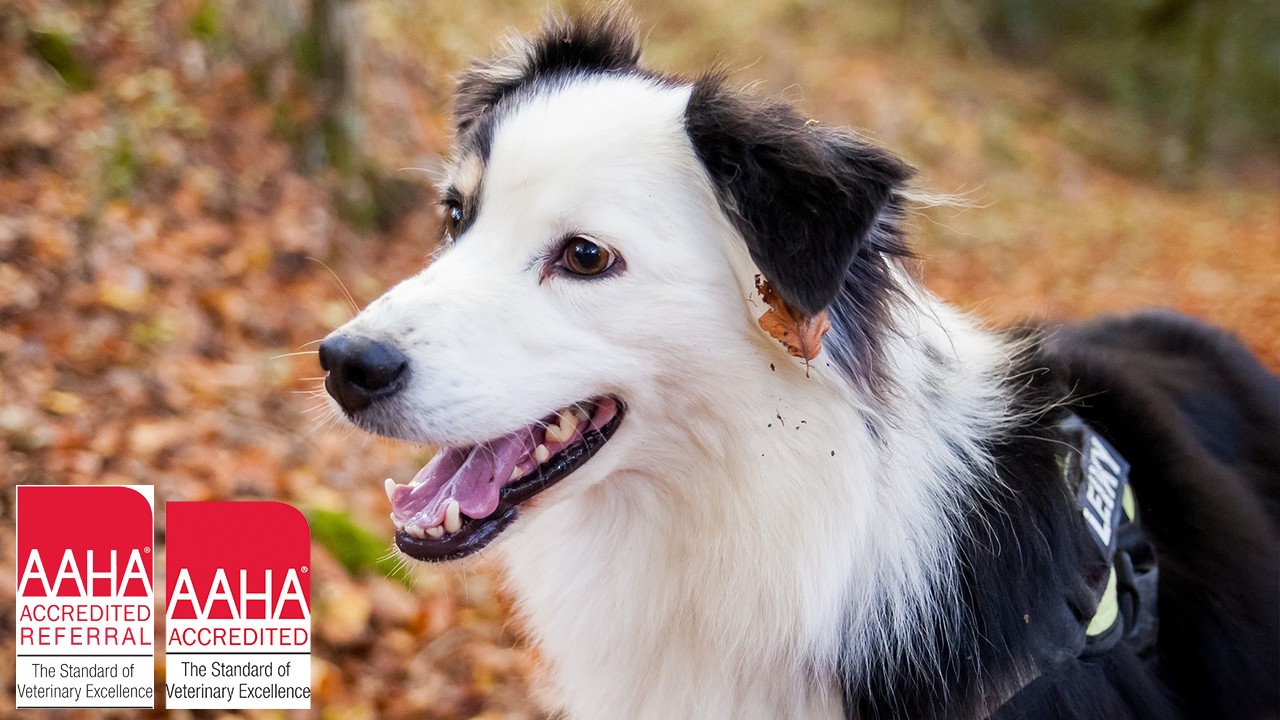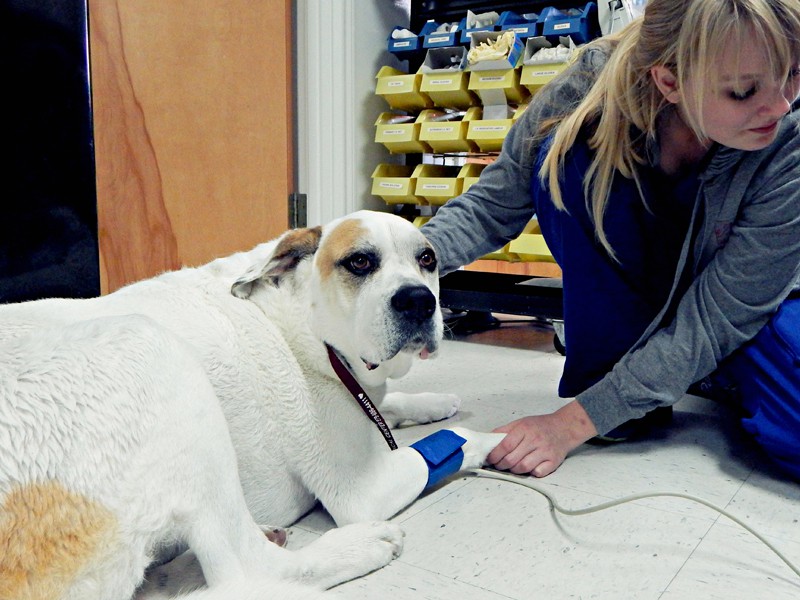All Pets Veterinary Medical Center Dogs and Puppies
All Pets Medical Center of College Station, Texas is an AAHA Accredited Referral Practice and an AAHA Accredited General Practice. Our care team works with your pet to make his or her visit a comfortable experience while our doctors and staff address your young puppy's and adult dog's healthcare and environmental needs.
Dr. Rupley and our team are committed to the whole well-being of your dog including at-home lifestyle, past medical history, and current health. We recommend annual preventative exams, vaccinations, and routine blood testing as a comprehensive wellness plan. We involve you in the medical process so that you can make informed decisions about your pet's healthcare.
Dog and Puppy Physical Exams

A skilled and knowledgeable technician will ask you several questions to better understand your pet's circumstances and to get to know you better as a client and patient. Our doctor will examine your pet from nose to tail and provide you with an explanation of their findings. Based on physical exam findings, our doctor will discuss treatment options to address any known health issues.
Our doctors recommend a complete physical exam once yearly for younger dogs. For senior dogs, we recommend a physical exam every 6 months.
Heartworm Prevention for your Dog
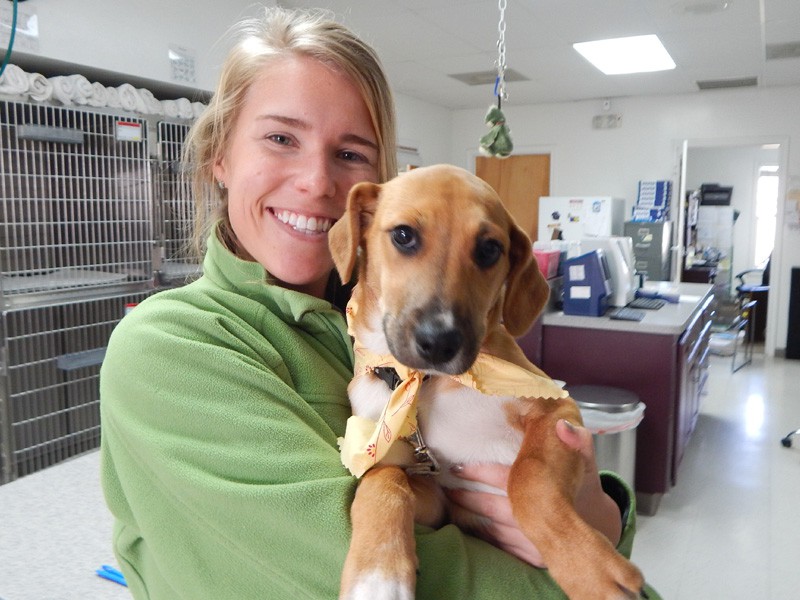
Heartworm infections are transmitted by mosquitos and pose a significant risk in our wet and warm regions to both inside and outside pets.
Due to the year-round presence of mosquitos, our doctors recommend a year-round heartworm preventative. We offer a variety of affordable and convenient medications to prevent infection including a 12-month injection, once-monthly oral medication, and topical medication. A heartworm test is required prior to administering heartworm preventative.
Canine Vaccinations
We offer high-quality and affordable vaccination packages to ensure protection against common communicable diseases. Our core vaccinations include rabies, distemper, hepatitis, parvovirus, and bordetella. Leptospirosis is not included in discounted packages but strongly recommended for most dogs. Our lifestyle immunizations include canine influenza and rattlesnake vaccinations.
Our veterinarians recommend and follow AAHA canine vaccination guidelines. For young puppies, multiple vaccinations in series are recommended to build immunity. For most previously vaccinated dogs, we recommend once-yearly or once every three-year vaccinations.
Rabies Vaccination
A rabies vaccination and registration is required for all dogs and cats in College Station, Bryan, and the surrounding Brazos County.
Puppies should be vaccinated at 12 weeks or older. Their next vaccination occurs one year later. Afterward, only vaccinating every 3 years is recommended.
DA2PLP Vaccination
This combination vaccine helps protect against distemper, adenovirus, parvovirus, and parainfluenza infections. Parvovirus is a commonly fatal disease in young dogs and canine distemper has no known cure.
Puppies start receiving this vaccination at 6 weeks of age and every 3 weeks until 14 weeks old. Their next vaccination occurs one year later. Re-vaccinating is recommended every 3 years.
Leptospirosis Vaccination
Leptospirosis is commonly spread through contact with wildlife, including small rodents that are common and present in most yards.
Puppies receive their first Leptospirosis vaccination at 6 weeks or older. A yearly booster is recommended.
Influenza Vaccination
Influenza vaccination is recommended for pets that travel to certain areas of the United States or who frequent boarding facilities or race/trade shows.
An initial vaccination is given at 6 weeks of age or older and boosted 3 weeks later. A yearly booster is recommended.
Bordetella Vaccination
Bordetella is commonly known as kennel cough. While puppies and senior dogs are most at risk of developing health complications, we recommend maintaining protection throughout a dog's life.
Your puppy's first vaccination can be administered at 6 weeks or older. A yearly booster is recommended.
Laboratory Testing and Disease Screening for Dogs
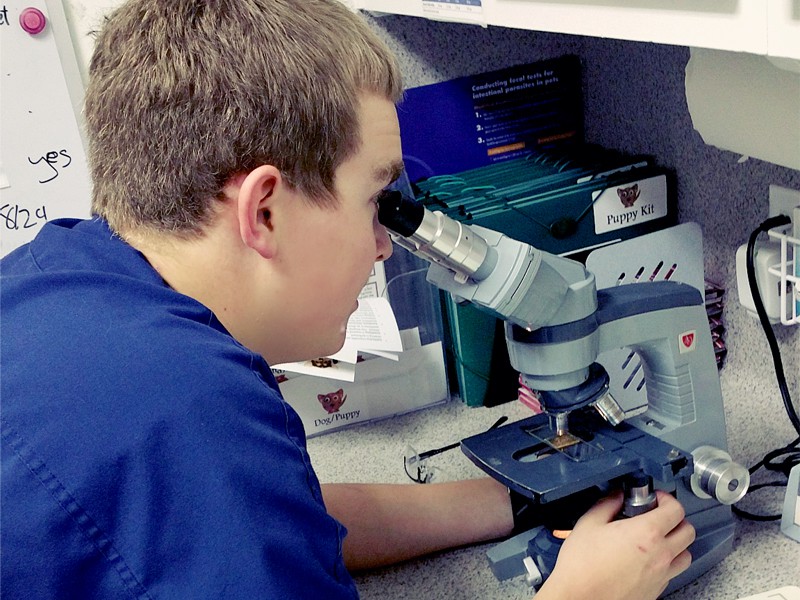
Intestinal Parasite Screen
A periodic microscope examination of your pet's stool is recommended for the early detection and treatment of intestinal parasites. Some of these parasites are zoonotic, meaning they can infect their owners. An intestinal parasite flotation and direct smear are performed to detect the presence of parasites and parasite eggs.
Our doctors recommend once-yearly screening for intestinal parasites.
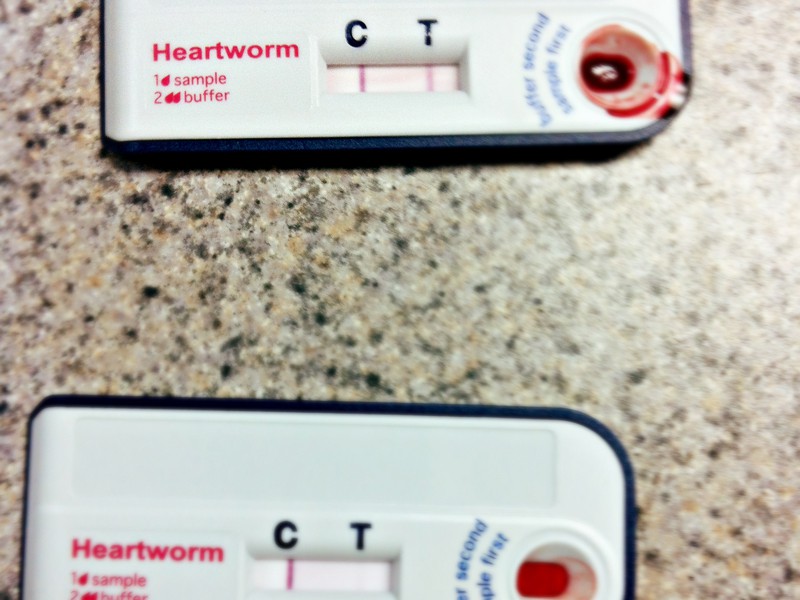
Heartworm Testing
Heartworm infections can result in cardiopulmony disease, organ failure, and a decreased quality of life. Our veterinarians recommend yearly prevention and once yearly testing for the presence of heartworm antibodies.
Testing is recommended for dogs 7 months of age or older.

Complete Blood Count
A complete blood count provides our veterinarians with tools to detect health issues such as leukemia, extreme stress, inflammation, or the presense of infections. A CBC is recommended for puppies to detect anemia, a common condition caused by iron deficiency that affects a young dog's ability to grow.
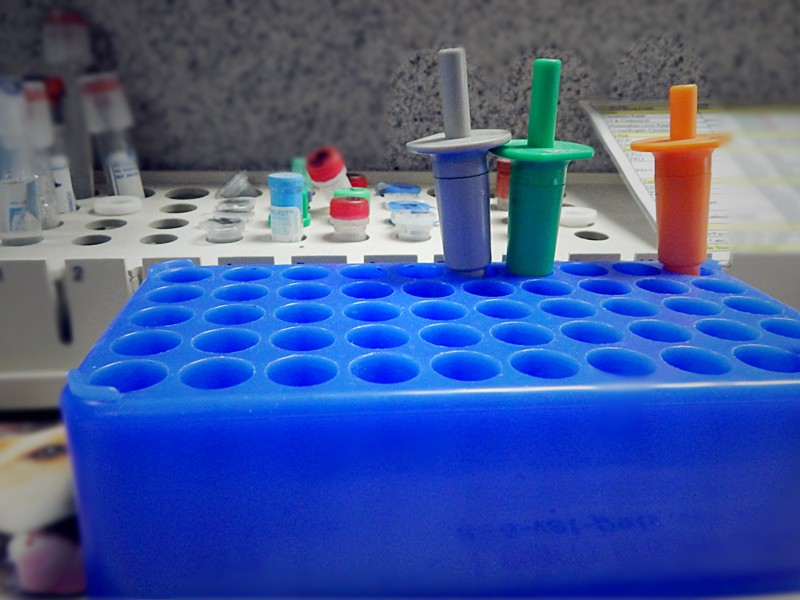
Chemistry Panel
Blood chemistry testing provides information to our doctors regarding your dog's liver and kidney function. Certain diseases affecting the liver, kidneys, pancreas, and intestines can be detected through the use of a blood chemistry panel.
Senior Dogs

Urinalysis
A urinalysis examines the function of the kidneys by analyzing the properties of urine produced. A physical examination of the sample, chemical analysis, and sediment interpretation are performed to help detect the presence of white or red blood cells, crystals, bacteria and abnormal levels of glucose, ketones, or protein in the urine.
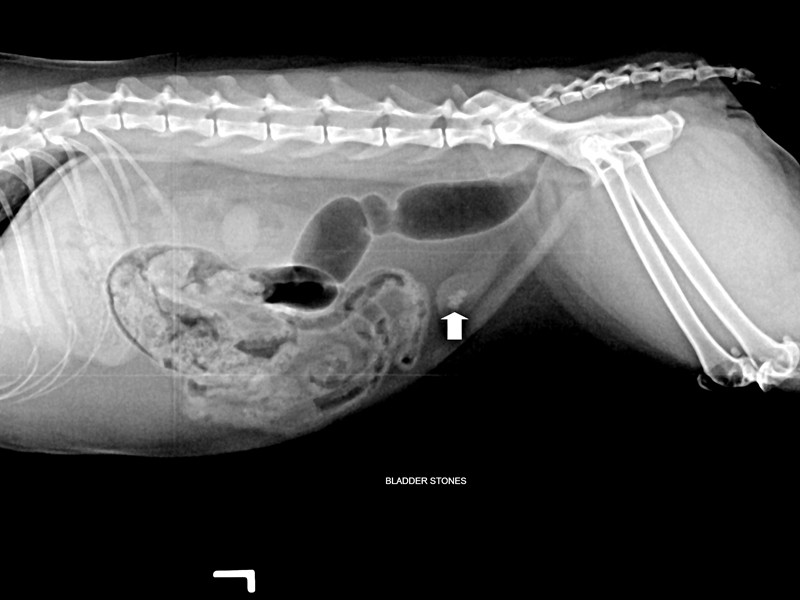
Digital Radiographs
Heart disease, cancers, lung abnormalities and other conditions can be detected through the use of radiographic imaging. When performed, our doctors can provide an interpretation of the radiographs or they can be submitted for board-cerftified radiologist review.
Blood Pressure
Hypertension can suggest an underlying issue including kidney disease and heart disease. Secondary hypertension accounts for about 80% of all hypertension cases. It can be caused by several factors, including renal disease, hormonal fluctuation, and hyperthyroidism.

Tonometry (Eye Pressure Testing)
Our veterinarians recommend screening once yearly in senior dogs for glaucoma and other eye disorders by measuring intraocular pressure. Glaucoma can result in damage to a dog's vision if not detected and treated.
Additional Testing Available
Vaccination Titers
Our doctors recommend titers for any pet parent wishing to reduce vaccinations given to their dog. Titers testing detects the level of antibodies present in the blood and helps determine the need for repeat vaccination. If a high antibody level is present, re-vaccination is not necessary.
Thyroid Level Testing
Hypothyroidism is the most common hormonal imbalance affecting older canines. Our veterinarians recommend once yearly testing for an under and overactive thyroid gland for all senior dogs.
Thyroid Stimulating Hormone
A thyroid stimulating hormone is used in conjunction with other testing to diagnose an overactive or under-active thyroid gland in dogs. Thyroid testing is very important in older dogs.





